TRANSCRIPT
[music]
ORDU: I’m Aloysius Uche Ordu, director of the Africa Growth Initiative at the Brookings Institution. And this is “Foresight Africa” podcast.
Since 2011, the Africa Growth Initiative at Brookings has published a high-profile report on the key events and trends likely to shape affairs in Africa in the year ahead. Entitled “Foresight Africa,” the goal of the publication is to bring attention to these burning issues and to support policy actions to address them.
This is season two of the “Foresight Africa” podcast in which I engage with the report authors, as well as policymakers, industry leaders, Africa’s youths, and other key figures. Learn more on our website, Brookings dot edu slash Foresight Africa podcast.
My guest today is Honorable Winnie Kiiza, former MP in the parliament of Uganda. Today’s podcast will be aired on March 8 as part of Brookings AGI’s celebration of International Women’s Day. Honorable Winnie Kiiza wrote a brilliant piece for us in Foresight 2022. We’ll be talking about that piece during this podcast. Honorable Winnie Kiiza, welcome to Foresight Africa podcast.
KIIZA: Thank you, Aloysius.
ORDU: Let’s get started with your impressive journey. Yours has indeed been quite an impressive journey. For the benefit of the young women and girls across our continent and elsewhere, would you tell us about your journey to date? What made you get into politics in the first place?
KIIZA: My journey has not been an easy one. I’ve told this story to many young people as a way of encouraging them and as a way of wanting them to get interested in what happens around them. I was born and raised in the village of ____ of Kasese District. I grew up in a political family. Both my mother and father were very active participants in the politics of Uganda when I was a child. Though he was a teacher by profession. My father belonged to a political party called the Democratic Party, while my mother belonged to a political party called the Uganda People’s Congress, which was the ruling party at the time. And so, I grew up seeing politics at work. Accepting each other’s opinion and views at work. So, I grew up loving politics.
So, when I went to school, I participated in the politics of school, as a class monitor, as a prefect. And then went through college. By then, joining the mainstream politics … was in 1998. But I was motivated to join politics because I grew up knowing that there is need for me to participate in making my community what we want it to be.
My father died when I was at the age of ten. And so, I grew up under the care and support of my mother. I saw my mother defying culture at the time of the death of my father. In our culture, when a man dies, a woman is supposed to be inherited by the relatives of the man. So, my uncles were supposed to inherit my mother, and my mother said no. The first woman at that time to say no to tradition, to say no to a culture that she thought was repressive of women. And so, she became my first role model at that time.
And of course, there is a cost that she paid for this big head, as they called it. And so, she told me what we need to do to ensure that we change our situation as women, wherever we are. And so, growing up as a young girl, I needed to question so many things, but at the same time I wanted so many things put in place. So, I kept asking her, how can someone hold leadership accountable? How can someone that speaks in decisions that will change the community? And so, she said it’s only when you are in leadership.
So, I grew up knowing that you can be in a position to change things when you have a position to do so. And so that is how I got into politics.
And then I served as a district councilor. I started low, district councilor. I ran for two terms. And then in 2005 our constitution was changed, that’s when we went into now full-blown multiparty dispensation. But at the time it wasn’t as easy to get into the opposition to government. But having served as a district councilor for two terms and in both terms serving as a minister at the district level, I knew that there was a lot more government had not done, and so my mind was really not to go into the government that was in power. So, I chose to be a representative on the side of the opposition.
Of course, there are costs that I have had to pay for this. I became the first female member of the opposition from the western part of Uganda. That is after I had been elected as a woman member of Parliament. And there were not men in parliament as members of the opposition. But I continued with the journey, I struggled, and I ensured that I got committees that would highlight the plight of women, that will highlight the plight of children, because I knew that these were the vulnerable people in our communities and needed that voice.
So, I really grew up knowing that I should be a voice of the people who are marginalized. I needed to be a voice for those who seek justice. And that has been my attitude from the time I joined politics up to when I retired in 2020.
I then rose to the rank of the Leader of the Opposition in the Parliament, and that appointment made me the first female leader in Uganda to the become a leader of the opposition. It was not an easy task. You know, in Africa, where democracy is just my world, the hardest job is becoming a leader of the opposition. It is even hardest when you are a woman, because of the stereotypes that people have about women. And indeed, it is one of the challenges that I faced when I became leader of the opposition. The community started asking, how on earth can a leader of the opposition be a woman, and moreover, at this time when we are all arms to challenge the government. But by the grace of God, I think I surprised many.
And I want to say that I retired, having done my job diligently, and I played my part, I still continue to play my part as a leader. Though it is sabbatical, I still hold my government accountable. I still speak for those who may not have the opportunity to speak. I still continue to believe in justice for all and give opportunities for all.
And so, that was the journey. And it’s the story I’ve been saying to young girls, that it is possible.
ORDU: Wow, Winnie that’s quite a journey indeed, from the influence of your mother to what you just outlined. I can imagine the challenges you faced, the multiple social, economic, and of course, political. So, given where you are now, what efforts are you yourself making to ensure that more women actively participate in politics in Uganda?
KIIZA: First, I had to be a role model that others would emulate, because I knew that if I don’t struggle to ensure that women are heard, then nobody would speak for that. So, throughout my journey, I’ve spoken about women inclusivity, women in politics, women in government. I’ve ensured that more women are in through boards and commissions. I have held mentorship sessions for young girls. I’ve gone to schools to speak to young girls who went to school leadership to encourage them to get into leadership of associations, leadership of institutions where they are.
As a member of Parliament, I also started an education program that would cater for young girls from challenging backgrounds, and yet were intelligent, to provide them with scholarships so that they can attain the basics in education to enable them participate in leadership. I have mentored members of Parliament, I have mentored councilors, I have participated in fellowships where young girls are mentored to become leaders. And I do all this to ensure that more and more women are at places where decisions are made.
ORDU: It’s quite a selfless effort. How would you rank or rate Uganda now in terms of women participation in political office compared to other the East African Community members, for example?
KIIZA: Well, I think Uganda, the first thing that Uganda did was to put in legislations that would encourage women to come on board. And actually, in terms of the East African community, Uganda is the first country that supports laws that deal with affirmative action. Many other countries have followed suit to ensure that they become like Uganda.
However, we are still struggling. I think the stereotypes that come along with women’s empowerment and of course the patriarchal nature of our society, it is only because we talked about the ____ passage in our Constitution that women are finding it easy to come in through political leadership because there are designated places that are meant specifically for women. When we get to the other spaces that are not designated as committed for women, women are not doing any better.
ORDU: So, let me now turn to your excellent essay in Foresight Africa 2022. In that essay, which you titled “It is not yet Uhuru for the Women of Uganda,” for the benefit of our listeners in Africa and around the world, can you tell us more about what you had in mind, what you mean by “it’s not yet Uhuru for the women of Uganda.”
KIIZA: Yes, I said it is not yet uhuru because many of the other African counterparts were looking at Uganda as a role model, they were looking at Uganda as a country that has moved some distance in terms of women empowerment and providing space for women to participate at the center of decision-making.
But deep inside me as a legislator who has been in Parliament for 15 years and have been in the politics of the country for 23 years, I knew that, yes, we had good laws. I knew that, yes, they had created spaces for women to participate. But that the environment to enable these pieces of legislation to be enforced was still not yet there.
That’s why I said it’s not yet freedom like we might think. And so, I used the word uhuru, which is a Swahili word, so that other African Swahili speakers can understand that it is not yet as free as they think in terms of equal opportunities for all in Uganda. We are not yet having the freedom that the women think while our laws would say women can, first, learn, women can participate in politics. But we have not yet put in many things that make it easy for women to participate.
And so that’s why I say, it’s not yet uhuru. We still have a lot to do. We still have a lot to learn from others.
ORDU: Winnie, you wrote that despite the positive steps taken in Uganda to promote gender equality, much remains to be done. As you just highlighted, education as one of those areas where action is needed. From a public policy standpoint, overall, what other recommendations would you make to improve gender equity in Uganda?
KIIZA: I think the issue of mindset transformation is one of the issues that we can talk about. When you reach into the education system of our country, you will find that many of our girls are still dropping out of schools because of menstrual hygiene, and who have not created shelters that can enable girls to go and change possibly their sanitary towels when they are getting through their periods. We still have taxes on sanitary towels, making them unaffordable for the girls in the rural communities and in poor families.
And so, for me, I have all the time been advocating for such amenities, taking health care closer to the population so that women can give birth easily, that they can find services when they go to the health care centers.
But we also need to ensure that there is access to financing. Many of our women can’t get loans because of collateral. Even when we are told we can have land, we can own land, but even when you marry that you have land, very few men will allow their women to use land as collateral. So, they can’t get access to financing. So, I’ve been advocating for providing sufficient resources for women who are into agriculture, because this is the backbone of our economy, and the majority of the women employed by agriculture.
So, I have been advocating for better pay for women, ensuring that the services reach everybody, most especially those that affect women directly to the education, health, and agriculture. And putting money into the Ministry of Gender of our country for example. And in many countries of Africa, the institutions that take care of women and children should be given sufficient funds to enable them to run the activities that will empower and energize women.
So, those are some of the fundamental issues that we have been grappling with here, for sure. That women are equal in power as men and given equal space with their counterparts.
ORDU: Uganda like everywhere else in the world. We just went through this horrendous COVID-19 pandemic. Just wondering from where you sit, the devastating impact, setback that the pandemic must have had on our women and girls across the continent. Any thoughts on that from where you sit?
KIIZA: Indeed, like you have said, it had a devastating effect on our women and girls. For example, the girls who were in school, we had that close down of the schools for two years. For girls who were out of school, by the time the lockdown was lifted over 600 girls had gotten pregnant, and they couldn’t go back to school. Many of them are now in marriages at an early age. And you know what that means? It means they may never get a chance of getting back in through school and therefore may never get the opportunity of getting in through leadership spaces.
Our women who were in through the hotel industry lost jobs. Many hotels were locked down. Many of our young girls were working in hotels, many of our young girls were working in markets which were closed. Many of the women were servicing mortgages, those were in businesses, and the businesses closed. Some of them have been forced to sell their properties to pay the banks.
So, the effect that COVID had on many of the children of Africa, many of the girls, many of the women on the African continent, may take us a decade to correct. And this calls us to have strong leaders who will take strong actions to ensure that the effects are reversed, like giving the girls a second chance to get back into school. Those whose mentors or guardians will not be there to support them through school, maybe for government to take deliberate action of ensuring that they get into school and government pays for them.
And ensuring that these women whose properties were taken, who lost their businesses, are given some soft loan or grants to enable them start life and enable them to continue with the businesses that they were doing to carry them forward, because of this affects also the income of the country.
ORDU: So, along the same lines, Winnie, many, many of our contributors in Foresight Africa 2023 have emphasized the importance of closing the gender gap, especially in STEM—in science, technology, engineering, and mathematics. What should Africa’s policymakers do to encourage more young women and girls to pursue careers in science, technology, engineering, and mathematics?
KIIZA: You know, the biggest challenge that was done to many of the African children was to tell them that science is for men. We grew up knowing that it’s only men who work in banks, it’s only men who work as doctors, it’s only men who operate heavy machines and therefore they are the only ones who can become engineers.
When Makerere University was opening up its doors to the world, they could not allow girls to study mathematics. The motto was “Let Men Be Men,” at the time Makerere University was opened, “Let Men Be Men.” When they were programming Makerere, they did not even think of girls coming up to Makerere to study, and so there was no dormitory or hall of residence for the girls. The first girls in Makerere were sleeping in the administration hall. And actually, one of the professors who was lecturing at the university said he couldn’t sit in a class where a woman was taking mathematics. So, that 17-year-old was told to change course, because one of the lecturers had said, I can’t teach in a class where a woman is being mathematics.
But currently as a country we are encouraging the study of science. That is why I think the president took the necessary steps to ensure that scientists that they knew better. And I think this was one way of motivating those who are still in school to rethink their choices. Scientists are paid better. Scientists are given first consideration to universities. And now, as parents, we are beginning to revise our thinking, because I think we should ensure that our girls also get into the science discipline.
So, we also have to work still mindset. We need to work on the mind of the parents, we need to work on the mind of the young people as well to ensure that they embrace science and technology. Many other institutions in many of the African countries now have embraced technology to the extent that now it is one of the requirements of the government institutions that they must have computers, and therefore the children going through these schools must ensure that they are technology compliant. We are now forcing technology into the schools and in families.
I’m seeing now a number of young girls getting into the medical field increasing. Many of our young girls are becoming engineers. And to me, it speaks volumes that I think the trend is changing. Women are embracing the other ways, or see that men fields, and they are making them become fields for everyone. And to me, I say congratulations, but we continue to see more and more need to be introduced into these disciplines. We look forward to seeing that we gathered these role models of the young people to speak again and again about their achievements and why young girls need to be in through all these other disciplines.
So, to to us in Uganda, for example, the fact that the head of state has been positive about science and introducing a pay raise to scientists, ensuring that they are given first priority in whatever they are asking for is a a right decision to encourage getting other young girls to get into the science disciplines. And I believe that this can transform the minds of those parents who still think that science is for men.
ORDU: Impressive indeed. So, Winnie, the gender gap still persists in political leadership across local governments, municipalities, national parliaments of which you’ve talked about, and executive institutions of power and of civil society in the private sector, et cetera, despite all the global and national laws that promote women’s rights to equal representation. Why do you think this mindset change is taking so long and this gender gap persists?
KIIZA: I still believe that the gender gap has persisted because of the leaders gap we have. Many of our leaders get into power with a mindset of “Let Men Be Men,” and that women will always find their place in the kitchen. They have not embraced the fact that we are in a changing society, and we have international and national legislations. We have we have signed the protocols that bind us to respect and uphold certain standards in terms of quality. Even when we have these laws, enforcement still lacks. And enforcement lacks because the top leadership of our nations has not come to terms with these equality aspects.
So, if we are to talk about mindset transformation, attitude change, then we need to reach out to those who are holding power. The presidents of our countries and prime ministers of our countries need to understand that we are equal partners in the development of our countries, and that actually when you involve women in positions of leadership, that it is a proven fact that countries that have involved women in the leadership of their countries have gotten higher dividends in terms of GDP increments than countries that have left women back home. Because many of the countries’ populations are composed of women. So, if you can’t include the biggest population of your nation, then who else are you increasing?
Too, even to us for whom these laws are made, we have not made an effort to speak for ourselves and to say no to the leaders that our elders have ____ __. And so, the women, I think, have not built up the necessary capacity to speak out for their rights than to stand firm. We appreciate small, small gains and we don’t want to go for the bigger gains. So, the mindset change is one of those.
And of course, speaking to those who hold the power. In many of the African countries we have these chiefs, they wield power, but when you get into the chiefdoms, they will tell you women are not supposed to come closer to power. So, they can’t have a prime minister of the kingdom as a woman. So, these chiefs are the same people who dictate what happens in society.
And so, the mindset is very, very important. When you have an open mind, you will be able to utilize it in an open way. But when you choose to have a mind that is closed, and that’s why all issues of having equality and fighting for freedom, fighting for justice and equal opportunities for all, it begins with the mind.
ORDU: Winnie, in spite of all these odds, you remain forever an optimist. So, looking ahead, what makes you very optimistic about the plight of our young women and girls across the continent in the year ahead?
KIIZA: Well, I am optimistic that the situation is going to change because many of our young girls are all now into education. They are now into politics. Even the small spaces that are available, they want to fill them. I got so excited when I saw in the elections that are happening in the many countries that have had elections in Africa, young people are now getting into the mainstream politics of their countries. And for me, this speaks volumes that our young people are growing up knowing that they have a duty to play, they have a role in the management of their affairs, they are the majority, and therefore they need to participate in what concerns them.
So, when young people take on the mantle of leadership, they come on board with a different mindset. The mindset of our old chiefs is not the mindset of the young people that we have. The ones that we have are technologically active, they now know that a woman can become an engineer because they have gone to the same schools with them. They now know that a woman can also bring a meal on the table because they are working with them, and women have started earning a pay.
But at least I know that we shall reach a point where each one of us would be looked at as an equal party. Because of the changes in technology, the changes in the mindset. And when we got into now the intermarriages that we have had, many Africans are marrying people of different origins. They come on board with different attitudes and different lessons for us to learn. And all this to us are an eye open.
The fact that now the world is a global village also makes it good news for us the people of the African continent, that now you just Google and you find out what is happening in another world, and you are able to learn lessons even when you are in your home.
So, I still believe that the time will come, the African woman will celebrate. The African women are intelligent women. They are knowledgeable. They are resilient. They are hardworking. They only need a simple touch and an understanding of the people they deal with so that they fly. And I know one time we shall fly.
ORDU: I’ve had the privilege of speaking with one of Africa’s famous daughters, Honorable Winnie Kiiza, former MP from Uganda. Winnie, thank you very, very much for making the time to speak today. Thank you.
KIIZA: Thank you, Aloysius, for giving me the opportunity to interact with you and interact with the whole world. Thank you so much and may God bless you. And I continue to pray that we work on the mindset, we put money where it’s needed, and make sure that our girls participate in deliberation of their countries. Thank you so much.
[music]
ORDU: I’m Aloysius Uche Ordu, and this has been Foresight Africa. To learn more about what you just heard today, you can find this episode online at Brookings dot edu slash Foresight Africa podcast. The Foresight Africa podcast is brought to you by the Brookings Podcast Network. Send your feedback and questions Podcasts at Brookings dot edu.
My special thanks to the production team, including Fred Dews, producer; Nicole Ntungire and Sakina Djantchiemo, associate producers; and Gastón Reboredo, audio engineer. The show’s art was designed by Shavanthi Mendis based on a concept by the creative firm Blossom.
Additional support for this podcast comes from my colleagues in Brookings Global and the Office of Communications at Brookings.
In this episode of Foresight Africa podcast, Winnie Kiiza, a Ugandan teacher and politician who served as leader of the opposition in Uganda’s Parliament, shares her story of growing up in a political family, entering politics herself, and advocating for policies that will open political, social, and economic opportunities for women and girls in Uganda.
- Subscribe and listen to Foresight Africa on Apple, Spotify, and wherever you listen to podcasts.
- Learn about other Brookings podcasts from the Brookings Podcast Network.
- Sign up for the podcasts newsletter for occasional updates on featured episodes and new shows.
- Send feedback email to [email protected].
The Brookings Institution is committed to quality, independence, and impact.
We are supported by a diverse array of funders. In line with our values and policies, each Brookings publication represents the sole views of its author(s).


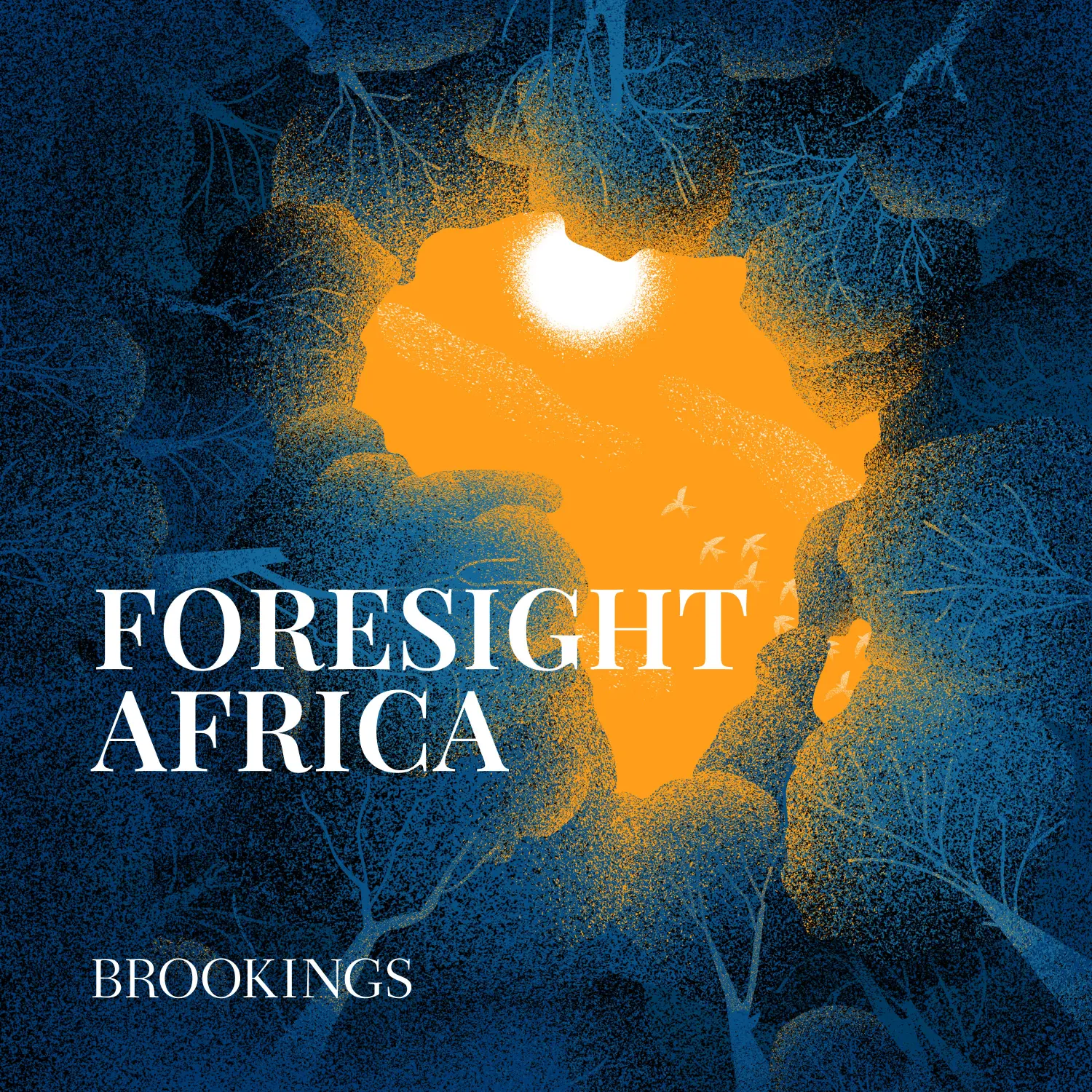
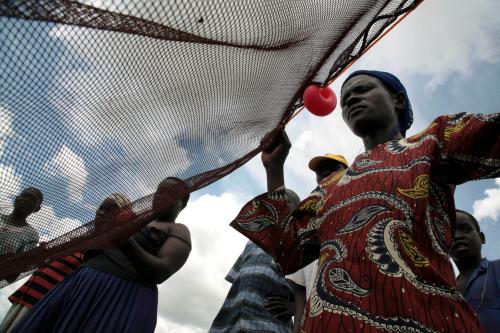

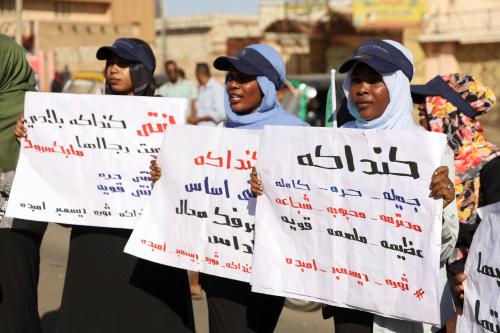
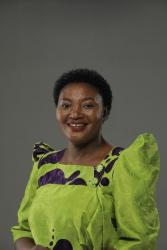
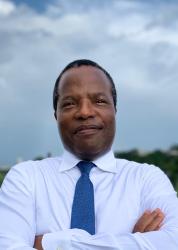

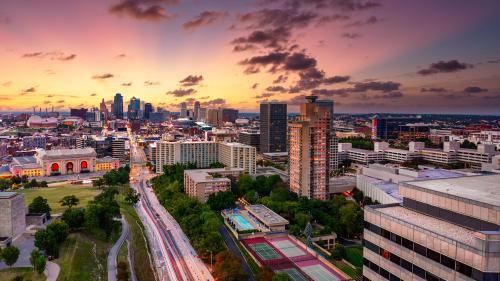

Commentary
PodcastIn Uganda, opening political, economic, and social doors for women and girls
March 8, 2023
Listen on
Foresight Africa Podcast